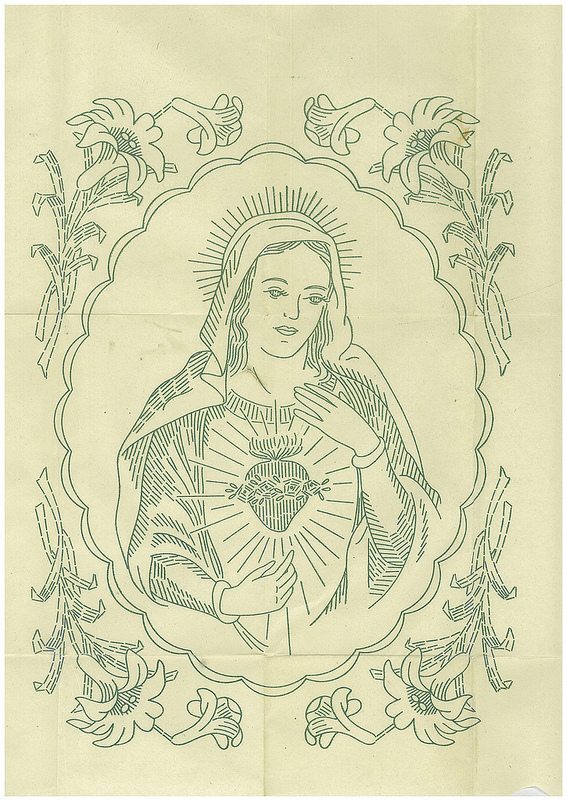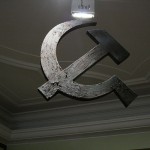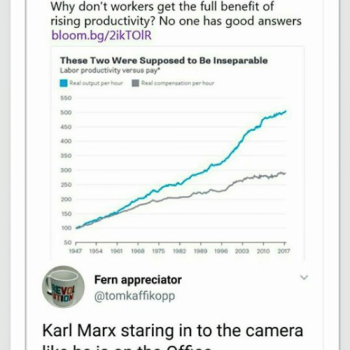
After a long, painful break from blogging (a consequence of changing jobs and moving at the same time), I returned to Patheos to see that an older article of mine, entitled “The Virgin Birth is Sexist” from back in August of 2016, had received a hearty rebuttal from an author on the Catholic channel, David Russell Mosley. As a strong believer in dialectics, I leapt at the opportunity to read some criticism of my work.
Mosley’s response to my claim that the Virgin Birth is sexist is well-written, impassioned, and utterly unconvincing. He begins his exploration with a complete mischaracterization and misunderstanding of my thesis:
“The sexism, the discrimination against Mary in the doctrine of the Virgin Birth is tied completely to the understanding that it isn’t real. This is, unfortunately for Chiakulas, a circular argument. The Virgin Birth is sexist because it was made up by men. How do we know it was made up by men? Because it is sexist.”
I’m not quite sure where Mosley is getting this idea from. None of the people who commented to voice their issues with the article – and there were quite a few – criticized it from this angle. The first part is accurate – the Virgin Birth is sexist, in part, because it was made up by men. That is to be expected of pretty much anything created in the profoundly patriarchal world of Mediterranean antiquity. But the second part? “How do we know it was made up by men? Because it is sexist.”
Mosley admits in a comment below his article that “I’m not an apologist,” and he would do well to remember that next time he tries to debate textual criticism. His supposed refutations of my argument for the ahistorical nature of the Virgin birth ring hollow.
Mosley first throws a sideways criticism at me for “leaving out John as well as the other New Testament writers altogether” even though, as I specifically mention in the OP, none of those other texts are relevant as they do not mention the Virgin Birth. His justification, that “John does not have many things that are contained in the other gospels, precisely because they are contained in the other gospels” sounds clever only to people who know nothing about New Testament criticism. There is no scholarly consensus on which parts of John are derived from the synoptic gospels, or even whether or not John knew any of them. Mosley’s claim to know why the author of John omitted or included details without providing a shred of supporting evidence is, quite frankly, absurd.
Mosley also accuses me of “[ignoring] the fact that these texts were gathered together, which means the early readers of these texts saw no discrepancy in all this.” This is yet another completely unsubstantiated claim, to say nothing of its impertinence. What does it matter what the early readers saw? The only thing relevant to the question of historicity is composition.
Next, my argument is blatantly mischaracterized again in regards to the alma-parthenos controversy, centering on the translation of Isaiah 7 from Hebrew to Greek.
“Chiakulas is beginning with the assumption that Matthew starts with Isaiah 7 and works his way forward to the Virgin Birth. He seems incapable of considering that Matthew started with the Virgin Birth and works his way back to Isaiah 7.”
It is here that Mosley’s argument officially falls apart, because he is blatantly wrong. Not only am I 100% certain that Matthew started with the Virgin Birth and worked his way back to Isaiah, but this is what makes my point. Matthew had the Virgin Birth tradition – whether from Q, from some oral tradition, or from his own imagination – and went back to scriptures to find supporting evidence for it. He happened to pick a verse that only applies when mistranslated, which should instantly dissuade a rational being from believing that Isaiah in any way “foretold” the Virgin Birth.
Mosley also says on this issue that I missed “the possibility of a text…having more than one meaning, particularly if the Holy Spirit is involved.” This is a particularly disingenuous example of an appeal to authority, because the authority is a deity that Mosley believes in and I do not (because I am non-Trinitarian). While I’m sure this is convincing to devout Catholics, it does absolutely nothing to disprove my argument. He also puts forth the claim that Isaiah 7:14 somehow refers to Maher-shalal-hash-baz, which I didn’t mention because it’s ridiculous and can be disproved by actually reading Isaiah in its entirety, something I doubt Mosley has ever done.
So no, the Virgin Birth wasn’t made up by men because it’s sexist, it was made up by men because virgin births simply don’t happen and there is no compelling historical evidence that this time is any different.
Mosley takes issue not just with my calling the Virgin Birth ahistorical, but also with my calling it sexist (although, to his credit, he admits that it “has been used” in sexist ways sometimes). I quipped glibly in the OP that when Mary is taken as the “ideal woman,” as she so often is, her status as a perpetual virgin is problematic.
Mosley disagrees:
“Somehow, Chiakulas misses that being a perpetual virgin wasn’t, in itself, what made Mary the ‘ideal woman’…but that she was the Theotokos, the bearer of God.”
I didn’t miss that. Not at all. Never in the OP did I claim that perpetual virginity was the prerequisite to “ideal womanhood.” The fact that Mary had to be a virgin to be the “mother of God” at all is the problem, because it reflects an antiquated and deeply sexist worldview that a woman’s worth is tied to her virginity (and thus to her social utility as a wife). It’s not the variations of interpretation that the churches have put on the Virgin Birth that make it sexist – it is inherently sexist, because it is the product of a sexist era.
Finally, Mosley is reduced to snide, veiled insults, defending (I think?) the supposed egalitarianism of the Virgin Birth by randomly name-dropping apocryphal texts, I guess to show off his biblical literacy street cred: “Chiakulas clearly doesn’t know about texts such as the Proto-evangelium of James or other early texts and stories concerning Mary’s death and assumption into Heaven which has her as the functional leader of the disciples.” Yes, I do know about them. The question Mosley fails to answer is, what does that have to do with anything?
For the original post, I was invited to speak on BBC’s Beyond Belief, where a panel of theologians and religious experts discussed my views. Some agreed with me, some did not. The point is to have a conversation. But David Russell Mosley’s rebuttal, laced with straw men, ad hominems, thinly-veiled insults, and bad eisegesis disguised with Catholic arrogance as universal truth (wait, now Joseph was a perpetual virgin too? What?) is not productive or conducive to debate.
Or maybe he’s right and I just have “an axe to grind against celibacy.” That could be true as well. Celibacy sucks.












